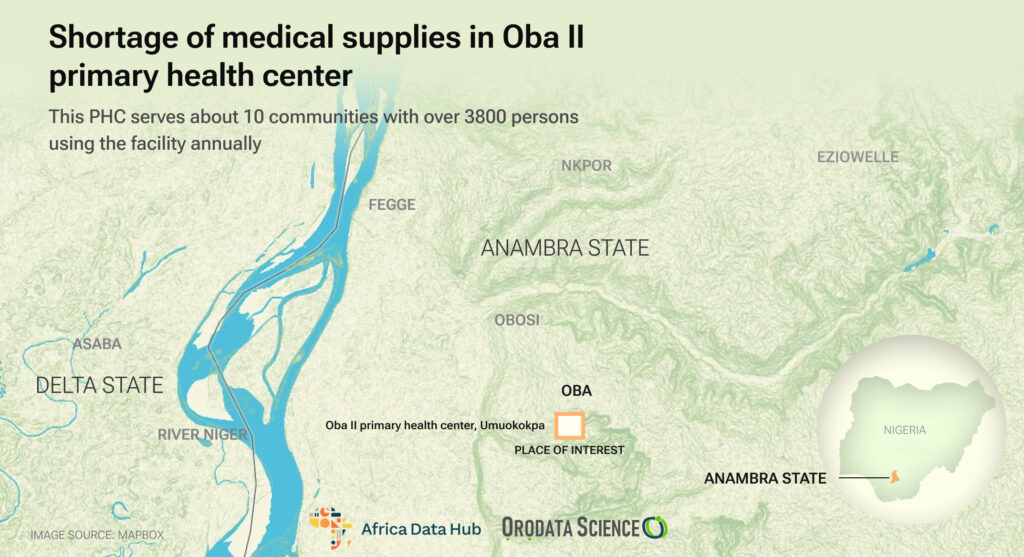The news of free antenatal and delivery services initiative launched by Anambra state governor, Prof. Chukwuma Charles Soludo CFR in September, 2023, was met with great excitement by indigenes and non-indigenes of the Anambra community. No doubt, a breath of fresh air from the financial burden pregnant mothers and their families have to face and also the thoughtful effort of the state government to lift up the burden of the effect of fuel subsidy removal.
Despite this goodwill initiative, there are many health workers who are displeased because of the limited medical supplies and poor equipment they use in running the initiative. In a visit to Oba II primary health center, Umuokokpa, the health worker stated how happy she was when she heard about the free antenatal and delivery services because things are hard and it is a way to lift up some burden from families which they really enjoyed, however, their happiness was not complete because they did not do the needful.
Talking about the shortage of medical supplies, she told this reporter: “That they are just bringing few drugs, not all the drugs that the antenatal mothers need are available and even the one that was available was just for few people. There was a time, they did not give us calcium at all, but you know that any pregnancy needs calcium and those that are having some issues like preeclampsia, we do give them their routine drugs and calcium before we refer them”. She further stated they do have laboratory issues, as only urisic is brought for them for glucose and presint yet they are supposed to do hepatitis B, Hemoglobin and HIV test. They must do this test, but there is no supply for it.
She lamented the inconsistency of the supply from the government as they have not gotten any since December last year yet they are still doing the free antenatal and delivery services. She said: “We are using our own money to buy these things. At times, they (pregnant mothers/relatives) give us one thousand or five hundred naira to share, they do give us things but we do not share it, we use it and buy more supplies needed for pregnant and nursing mothers, we cry, call them and send messages.
In a bid to make sure their supply does not run out, she often tells pregnant mothers when they come for antenatal some supplies that have finished, so if they can, they bring for themselves. Some pregnant women when coming buy some of the things (gloves, delivery mat, pads) needed for their delivery while some come empty handed and they (health workers) have to even provide baby clothes which are not included in the initiative.
Speaking with another health worker in Ihiala LGA, she lamented the lack of supplies for the free delivery and antenatal as the last one received was in November, 2023. She said: “We received certain things from government since November and we have made use of all of them. I even told them (co-ordinator) through WhatsApp in December that I need things for the free delivery and there is no how I can use my bare hands to deliver. The admin told me she is working towards it and up till now nothing. We don’t have some of the items like gloves, or some drugs that are needed. In Fact, we do not have almost all of them. We are working with just nothing”.
On how they manage to still deliver pregnant women despite the limited supply, she told this reporter that they ask the patients or their relatives to get it (the supplies they need) for them. ” If we need drip or other things, we ask the patients to go and get it for us. From the little one they come with, we manage and then we deliver them. The laboratory equipment used for testing pregnant women in this facility are not available. Sometimes, I do have about sixty patients, but the urinary strip will not be enough”.
THE NEED FOR QUALITY MATERNAL CARE
The World Health Organization (WHO) in a report, globally estimated that 810 women died each day due to complications of pregnancy and childbirth with the majority of deaths in low- and middle- income countries in 2017. Also, in the last two decades, about 287,000 women died during and following pregnancy and childbirth in 2020.
Excessive blood loss, infection, high blood pressure, obstructed labour as well as indirect causes such as heart disease, anemia, malaria are most of the common direct causes of maternal injury and death.
Hence, essential resources, motivated and skilled staff among others are in the list of standards and quality statements applicable to all health facilities that offer maternity services. To ensure quality treatment given to pregnant mothers before and after delivery, all health facilities should have skilled, well-trained and motivated staff available twenty four hours a day to provide care and manage complications.
Also, the health facility should have an appropriate physical environment, with adequate water, sanitation, light/energy supply, medicine, supplies and equipment for routine care for both mothers and babies and to manage complications.
Other standards and quality for maternal care includes: Evidence-based practices for routine care and management of complications, effective referrals of women and babies with complications to the right health facilities with the available resources needed, accurate record of all information in the health facility, effective communication to patient and her family, emotional support and caring for mothers and their babies with respect and preservation of dignity.
This story was produced for the Frontline Investigative Program and supported by the Africa Data Hub and Orodata Science

